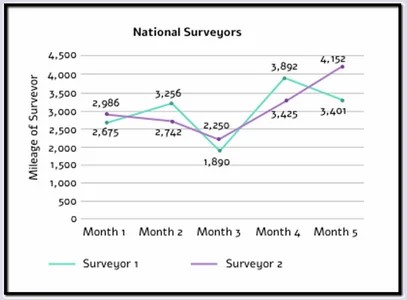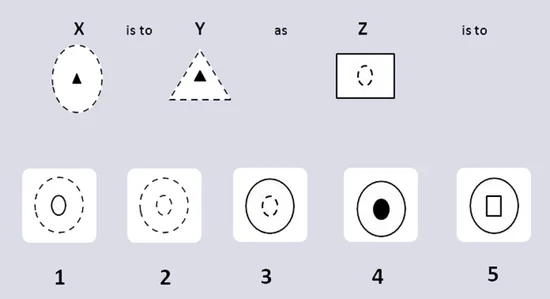Psychological testing has continued growing in popularity with employers as an effective recruitment tool. Psychological assessments have been used by some of the biggest companies around the globe to analyse and understand applicants to find the most suitable candidates for a role.
Psychological tests incorporate an intelligence assessment, also evaluating interpersonal skills, aptitude and ability. The results of these analyses can help HR teams to better understand the potential a future employee may offer. They are a brilliant tool for assessing a person objectively and can standardise measures of behaviour, helping to remove bias from the recruitment process.
At Thomas International, we develop assessments for businesses that are based on psychological expertise and experience. Incorporating our range of psychometric assessments you can quickly garner whether someone will be the right fit for your business. Thomas International is registered with the British Psychological Society and audited against technical criteria established by the European Federation of Psychologists’ Associations.
What is psychological testing?
Psychological testing is used throughout society to better understand people and their behaviour. Used across a range of areas that intersect our daily lives such as education, occupation and health, it is a standardised way of measuring attributes of a person. These assessments identify strengths and weaknesses, covering a multitude of categories including intelligence, aptitude and personality among others.
Integrating psychological testing into your business’s recruitment process can yield fantastic results that nurture a more engaged workforce and find the best candidates for the role, both measuring their abilities and assessing whether they’re a culture fit. Measuring potential and drive among other attributes of a person, HR teams can use psychometric testing to reduce bias when reviewing candidates.
At Thomas International, we work with your company to source new staff and identify high-potential employees already within your ranks. Experienced in supporting businesses to strengthen their recruitment efforts along with helping to shape their internal development programmes, we offer a range of psychological assessments including a general intelligence assessment to analyse aptitude, emotional intelligence and workplace personality testing to assess someone’s approach to their work. Incorporating these assessments into your HR practice can provide valuable insights about your team. #
Psychological testing principles
We use five Psychological Testing Principles to develop our assessments ensuring they offer value to businesses.
- Standardisation - using consistency throughout the process within the same environment to ensure the same testing performance is achieved for all being tested. This ensures candidates are measured equally and fairly.
- Objectivity - minimises bias that can become subjective during the hiring process to ensure all candidates are measured the same way.
- Test Norms - identifies the average test score of a larger group and creates a point of comparison of an individual’s results.
- Reliability - consistency in obtaining the same result after multiple tests to highlight the ability of a person.
- Validity - ensuring the testing provided measures the intended measurements of the assessment.
These principles provide a fair, objective and reliable way of accurately assessing candidates based on a range of abilities throughout the assessment without the implication of bias, subjectivity or unfair advantage, therefore giving the best indication of an individual’s abilities and suitability for a role.
Types of psychological tests
There are a number of different psychological assessments that can be used to evaluate various elements of a person’s personality including:
Intelligence tests
Intelligence or IQ tests assess a person’s intelligence level as well as their ability to relate in a foreign environment. Our General Intelligence Assessment tests intelligence spanning across reasoning, perceptual speed, number speed and accuracy, word meaning, and spatial visualisation, to provide insight and wider intelligence.
Personality tests
Personality tests evaluate the different personality types of a potentital employee including their behavioural preferences and communication patterns. These tests are useful for employers to understand if a person will be a good culture fit for their company.
Emotional Intelligence tests
Emotional Intelligence tests assess a person’s abilities to recognise and understand their own emotions as well as those of others, along with empathy. In recent years it has been dubbed one of the most sought after qualities within leadership. Our Emotional Intelligence assessments can help evaluate your staff’s direction of approaching their emotions and the emotions of others in the workplace.
High potential tests
The Thomas High Potential Trait Indicator (HPTI) helps identify leadership potential by exploring a person’s personality traits. This can be particularly useful for HR teams for succession planning to identify potential leaders within the organisation.
Preparing for a Thomas psychological test
Knowing you are going to be taking a psychological test during the recruitment process or while in employment can at first appear daunting. However, with a little preparation to understand what is involved in the process, you can ease anxieties you may be experiencing. When preparing for a Thomas psychometric test, these are some pointers that can help you:
- Before answering each question, make sure that you’ve read through the instructions slowly and deliberately, so as not to miss any key information.
- Be consistent in how you answer the questions. The test is designed to include similar questions asked in different ways to catch out those giving answers that they think the employer wants to hear, instead of answering truthfully.
- As you work through the test, keep these 4 four desirable qualities in mind - Steadiness, Compliance, Dominance and Influence- and try and choose words that sound similar too, or match these traits.
- During the test, keep the job you are applying for front of mind. Think about what attributes or traits your employer may be looking for in the position and how your personal traits may be relevant.
- Above all, be yourself and answer the questions as truthfully as possible. The test is as much about what the employer is looking for as it is about making sure the position is the right match for you.
Preparation is key not only in reducing anxiety you may experience around taking a psychological test but will also show your employer your aptitude towards your occupation.
Thomas psychology self tests
Understanding the type of questions and why they are asked can help prepare candidates for psychological testing. The following questions offer insight into the type of questions used to assess various skills and how they can help the recruitment process.
Numerical reasoning
These tests are particularly useful for people that will be in roles such as finance or management and identifies the most highly qualified candidates in relation to numbers-based data.
Example:

Between which two months was there the smallest proportional increase or decrease in the mileage of Surveyor 1 in comparison to the previous month?
A) Months 1 and 2
B) Months 2 and 3
C) Months 3 and 4
D) Months 4 and 5
E) Cannot say
Answer: D
In order to determine the rate of increase or decrease between two months, use this formula:
|Mileage in current month – Mileage in previous month| / Mileage in previous month
With these questions, the employer is looking to assess a candidate's basic numerical reasoning ability. They could also be looking to see how well they can interpret and analyse data delivered through various modalities (such as graphs). Such questions help to separate those candidates who are reasonably qualified to keep up with daily numbers and data-based activities from others who might struggle.
Verbal reasoning
Verbal reasoning assesses comprehension, with roles in management, law and communications needing to be highly proficient in this area. It will identify candidates with a high level of comprehension and ability to understand various written content.
Example:
If the first two statements above are true, is the third statement true?
A) Mr. Brown's rabbits are grey.
B) All grey creatures are kind.
C) Mr. Brown's rabbits are unkind.
Answer: The final statement is not true.
Because Mr. Brown's rabbits are grey and all grey creatures are kind, we can deduce that Mr. Brown's rabbits are definitely kind.
With this section of the test, the employer will be looking at how well a candidate might draw accurate conclusions or make inferences based on the information they’re provided. How a candidate performs with this section will signal how well suited they are to roles where understanding information and making reasonable decisions and judgements based on this are key.
Induction reasoning
Induction assessments analyse general intelligence and can be useful for a wide variety of roles. They also assess creativity and the capacity to understand new information, which can inform a company about how quickly a new staff member can adapt to learning a role.
Example:
Look at the sequence of images. Then pick the image that goes with Z the same way that Y goes with X.

Answer: The correct answer is 3.
The relationship between figure X and figure Y is as follows:
- The outer shape of figure Y is the same as the inner shape of figure X.
- The format of the outer shape of figure Y (dotted line) has the same format as the outer shape of figure X.
- The inner shape does not change.
The correct answer must have the same relationship with figure Z.
For employers, these kinds of questions will show how well a candidate may adapt their thinking when presented with new or unusual situations, as well as how creative they can be. This section can help separate candidates who are likely to adapt and learn more quickly in a new role from those who might need more time to adjust.




